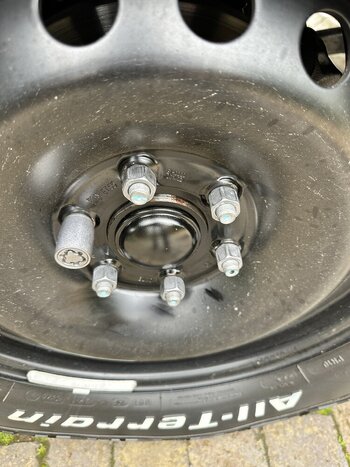Hi, similar to the electrical gremlins (all to date superficial[?]) there seem to be some common issues on the newly collected vehicles with surface rust on wheel centres/axle ends. My car (a sub 1000 VIN) is suffering from a mild dose of this - see below
front wheel lh

Rear wheel lh. Note it is as if the metal on centre element this side has been treated in some way ie it has a dark finish much like the front face and no/less visible surface rust? Note also rust to end of wheel bolts (this only seems to be afflicting this wheel)

front rh

Is this the same/similar for other new owners?
front wheel lh
Rear wheel lh. Note it is as if the metal on centre element this side has been treated in some way ie it has a dark finish much like the front face and no/less visible surface rust? Note also rust to end of wheel bolts (this only seems to be afflicting this wheel)
front rh
Is this the same/similar for other new owners?




